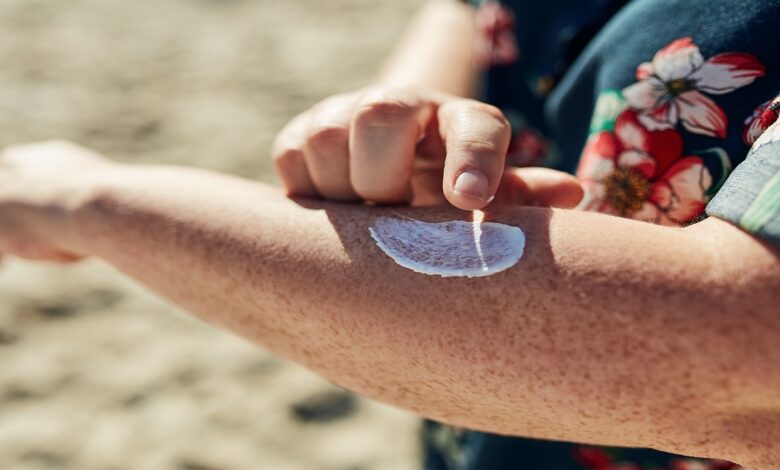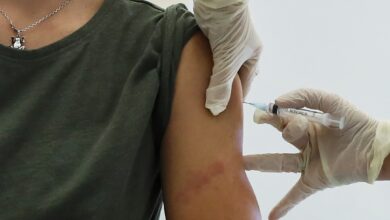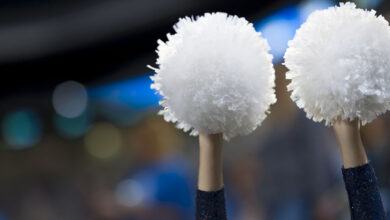Johnson & Johnson recalls several sunscreens: How to choose the right product

[ad_1]
Following news of a Johnson & Johnson voluntary recall on several aerosol sunscreen products containing a harmful substance called Benzene, a top expert in dermatology is advising use of creams, lotions and sticks instead.
“Sunscreen is safe and effective at protecting against a well established and known carcinogen, UV radiation,” Dr. Adam Friedman, professor and chair of dermatology at the GW School of Medicine and Health Sciences told Fox News.
HEALTH OFFICIALS WARN OVER MELANOMA AS SUMMER HEATS UP: HOW TO PREVENT DEADLY SKIN CANCER
According to the American Cancer Society, opting for a sunscreen with “broad spectrum” protection, SPF 30 or higher and reapplication at least every 2 hours can help prevent the harmful effects from UV radiation like skin cancer, premature aging and sunburn. Additional preventive measures include wearing protective clothing, a hat, sunglasses and seeking shade between peak hours like 10 a.m. to 4 p.m.
“Every day is a sun protection day,” Friedman said.
Stay mindful of certain areas on the body more sensitive to UV radiation, like the delicate skin around the eyes, back of the hands and décolleté, Friedman said, noting these are common areas where dermatologists see skin aging and skin cancers among patients. Those concerned about stinging and burning to the eyes from sunscreen use can opt for sticks for a more controlled application, but pass over the area four times.
Those more concerned with product ingredients could opt for mineral-based sticks, though Friedman also gave the OK to sticks containing organic filters, adding that the science hasn’t supported controversy around hormone disruption or negative effects for the environment.
SHOULD YOU WEAR SUNSCREEN WHEN YOU’RE WORKING FROM HOME?
However Friedman and another expert, Dr. Henry Lim, dermatologist at the Henry Ford Health System in Detroit, agree it’s important not to generalize against all aerosol sprays, as just a handful were affected by the J&J recall.
“The UV index differs throughout the year but it doesn’t matter what time of year it is, you’re still being exposed and it just takes a matter of minutes, 10-15 minutes, during peak hours to get damage that accrues over time that could lead to skin cancer,” Friedman warned.
While the recommended amount of sunscreen equates to roughly a shotglass-worth, people hardly apply enough product, he said, in which case selecting sunscreens with a higher SPF could be beneficial. SPF 30 blocks about 97% of UV-B radiation, with protection climbing to 98.6% for SPF 50.
HOW TO TREAT A SUNBURN: SIGNS TO WATCH FOR THIS SUMMER
“I try to encourage patients to use a higher SPF. I typically say 30 or higher, but if you can, I would say 50-plus if possible.”
However, selecting a sunscreen with higher SPF doesn’t mean it will last longer; make sure to reapply every 2 hours or promptly after sweating or swimming. Water resistant products lend an 80-minute interval before recommended reapplication.
[ad_2]
Source link




